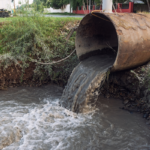Why Food Spoilage Insurance Coverage Is Critical for Restaurants
Securing insurance for property damage and business interruption for a restaurant is on the menu of coverage items to protect an establishment should it suffer a loss such as fire that forces it to shut down temporarily. There are other critical coverages that should be a part of the property package as well, including Food Spoilage insurance coverage.
Food Spoilage insurance coverage is not typically included in standard Commercial Property insurance, and must be added as an endorsement to the policy. It’s designed to help reimburse a restaurant for the cost of lost food and beverages up to the limits indicated in the policy.
The causes of loss that trigger Food Spoilage insurance include a prolonged power outage that is out of the insured’s control, resulting in the shut-down of the refrigeration or freezer units; and equipment breakdown or failure. Coverage will kick in to help replace spoiled or contaminated food. Take a look at our white paper on “Understanding Restaurant Coverage: Food Spoilage” for more information and share it with your insureds.
Mitigating Food Spoilage
Following are several loss-control measures restaurants should implement to prevent and/or minimize food spoilage:
- Maintain restaurant equipment, including refrigeration units. A malfunctioning refrigeration unit can lead to food spoilage, costing your business significant dollars in terms of lost inventory and ingredients. It could also lead to foodborne illnesses.
- Look into purchasing a small generator to keep refrigeration units operational in the short term in the event of a power outage.
- During a power outage, immediately discard any food, especially meat that is in the process of cooking but hasn’t reached its safe cooking temperature at the time of the power disruption.
- Make note of the time when the power turned off to have a good sense of how long ingredients went without being properly refrigerated.
- To keep the cold in, open the walk-in refrigerator as little as possible. This will help maintain a safe temperature for the food and could potentially prevent having to throw some ingredients out.
- Ensure all raw meat in the walk-in refrigerator and freezer is separated from the other ingredients. That way, if the meat does spoil or leak, it doesn’t contaminate the fresh produce and other food.
- After the power comes back on, note the time again, and calculate how long it’s been out. This, and the current temperature of the food in the walk-in, will determine if you can salvage your stock.
- Comply with any requests from the power company and the local health department throughout the entire incident.
Distinguished Programs provides a Restaurant Package for fine dining, family dining, fast-casual dining, catering, and wine bar risks. The package includes Property, General Liability, Liquor Liability, and other product enhancements. Food Spoilage insurance coverage is available via an endorsement to our Commercial Property policy with a maximum limit of $100,000. Sources: IRMI, I.I.I., Rewards Network




